Kazuo Hara
Nacimiento : 1945-06-08, Ube, Yamaguchi, Japan
Historia
Kazuo Hara (原一男 Hara Kazuo, born 8 June 1945) is a Japanese documentary film director. After dropping out of university to work at a special education school, he made his 1972 debut work Goodbye CP about a group of individuals with cerebral palsy. He won the award for Best Director at the 12th Hochi Film Award and at the 9th Yokohama Film Festival for The Emperor's Naked Army Marches On. That film also earned him the Directors Guild of Japan New Directors Award. In 2017 he released the documentary Sennan Asbestos Disaster which received the 2017 Audience Award at the Tokyo Filmex International Film Festival and the 2017 BIFF Mecenat Award at the Busan International Film Festival. His documentary works often depict people who push against the boundaries of propriety and obedience in Japanese society.

Director
After years of dumping industrial wastes from the factory to the ocean, Chisso Chemical Corporation contaminated the area of a small Japanese fishing village with excessive amounts of methylmercury. This highly toxic chemical bioaccumulated in fishes of the local water, which when consumed by the local populace resulted in mercury poisoning. In 1977, Minamata disease certification criteria was set by a strange method that tried not to recognize the rights of environmental disease patients. However, an Osaka court won the case for some patients because of a newly developed theory by medical doctors’ recent experiments and proofs. For decades, these patients struggled within the Japanese judicial system for their rights to receive compensation as victims of environmental disease. Those different aspects of these patients’ lives have been filmed by director Hara for the last 15 years, inspired by the late director Tsuchimoto’s documentary MINAMATA: THE VICTIMS AND THEIR WORLD (1971).

Cinematography
Kazuo Hara follows Ayumi Yasutomi, a transgender candidate, who is also a Tokyo University professor, as she embarks on a national campaign for a seat in Japan's Upper House.

Producer
Kazuo Hara follows Ayumi Yasutomi, a transgender candidate, who is also a Tokyo University professor, as she embarks on a national campaign for a seat in Japan's Upper House.

Director of Photography
Kazuo Hara follows Ayumi Yasutomi, a transgender candidate, who is also a Tokyo University professor, as she embarks on a national campaign for a seat in Japan's Upper House.

Director
Kazuo Hara follows Ayumi Yasutomi, a transgender candidate, who is also a Tokyo University professor, as she embarks on a national campaign for a seat in Japan's Upper House.
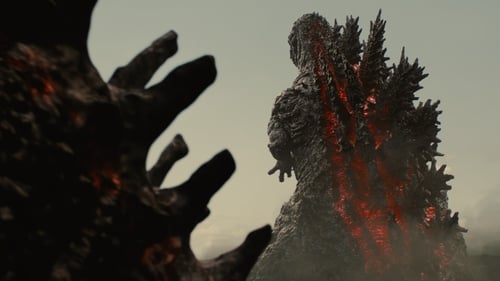
Biology Professor
Godzilla, fuerza destructiva insondable para el hombre, resucita en el Tokio de hoy en día para acosar de nuevo ala civilización. Un país aún atormentado por las secuelas de un desastre natural, experimenta de repente el horror catastrófico de Godzilla. Apremiado por la muerte y la desesperación, Japón deberá encontrar el poder para superar este desafío. Primera película de Godzilla realizada en Japón desde "Godzilla: Final Wars" (2004) de Ryuhei Kitamura, dirigida por Hideaki Anno ("Evangelion") y Shinji Higuchi ("Attack on Titan").

Director of Photography
This film is about a lawsuit seeking state compensation for asbestos-related damage in the Sennan area of Osaka. Filmmaker Hara Kazuo records the eight-year struggle of the plaintiffs and their lawyers. A dogged and dramatic depiction of their intense battle.

Director
This film is about a lawsuit seeking state compensation for asbestos-related damage in the Sennan area of Osaka. Filmmaker Hara Kazuo records the eight-year struggle of the plaintiffs and their lawyers. A dogged and dramatic depiction of their intense battle.

Executive Producer
Sayaka ONO created a painful and deeply moving portrayal of her own vulnerable soul, based on the tense relationship with her parents. Left alone for a entire year at the age of five, she had to grow up with the constant fear of getting abandoned again. Her difficult childhood and youth resulted in depression, frustration and anger, that she now shares with the world.

Director
When her husband is hospitalized with tuberculosis, Chika has a series of three relationships: with a teacher in her hometown, with a student in Tokyo, and with an aging gangster.

himself
Devotion investigates the extremely complex and heirarchical relationships among a committed group of Japanese filmmakers who dedicated up to 30 years of their lives making films for one man-Ogawa Shinsuke. Members of Ogawa Pro filmed the student movement of the late 60's; the fight by farmers to save their land from government confiscaton for the Narita airport at Sanrizuka; and the village life of a small farming community, Magino Village, in northern Japan. These heartbreaking and sometimes funny stories have never been told on film before. Rare footage, stills, and diaries with interviews with Oshima Nagisa, Hara Kazuo and Robert Kramer make this historical inquiry visually exciting as well as valuable.

Director
A documentary following the lives of people in Mishima, a small island off the coast of Hagi City, Yamaguchi Prefecture.
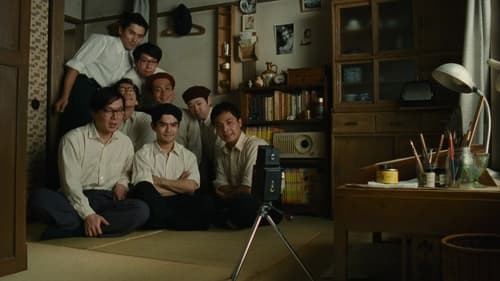
Kato
There still stands a famous apartment building where such prominent manga artists as Tezuka Osamu, Shotaro Ishinomori and Fujio Akatsuka once lived, worked, and shared experiences.

Co-Director
A group of Japanese tourists try to forget their pasts and find themselves in India.

Director of Photography
A profile of the controversial novelist Mitsuharu Inoue, filmed during the last years of his life.

Director
A profile of the controversial novelist Mitsuharu Inoue, filmed during the last years of his life.

Co-Director
Toyoichi Otomo suffers from psychological and spiritual troubles after a horrific industrial accident. He lives with his elderly mother and wife near Mt. Aso in rural Kyushu. He seeks solace in a small religious group run by Buddhist nun Chishu-bo who claims to be the 68th descendant of famed 11th century poet Izumi Shikibu. The members of her sect regard her as a living saint. Yet instead of balming his soul, she riles his libido by playing a sexual cat-and-mouse game with the fragile Toyoichi. When she does bed him, it leads to a miracle healing -- followed by a terrible calamity.
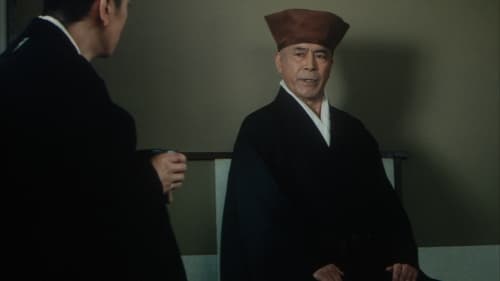
Co-Director
La muerte de un maestro de té narra el suicidio de un célebre maestro de té nipón del siglo XVI.
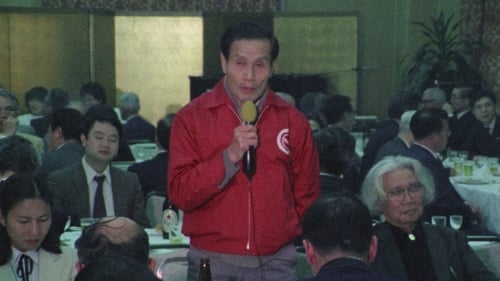
Director of Photography
Kenzo Okuzaki, a 62-year-old veteran of the New Guinea campaign in World War II, sets out to conduct interviews with survivors and relatives to find the truth behind atrocities committed while the Japanese garrison was surrounded, in particular the unexplained killing of two Japanese privates in his unit.

Director
Kenzo Okuzaki, a 62-year-old veteran of the New Guinea campaign in World War II, sets out to conduct interviews with survivors and relatives to find the truth behind atrocities committed while the Japanese garrison was surrounded, in particular the unexplained killing of two Japanese privates in his unit.

Co-Director
Two interns and a nurse are interrogated by American MPs for their involvement in an atrocity during the war: the vivisections of a downed American air crew.
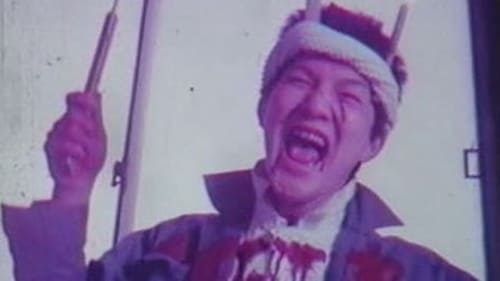
Director of Photography
Pig Chicken Suicide is a veritable assault on the senses, mixing violent images of animal slaughter, racial strife, and surrealism to tell the story of two Koreans living in Japan whose love is destroyed due to overwhelming racial discrimination. In explicit abattoir photos and much symbolism, Matsui tells about the struggles of ethnic Koreans in Japan. A butcher's love affair and his relationship with the animals he kills frame the story.

Assistant Director
A couple originally from Okinawa run an inexpensive restaurant in Kobe, with their grade-school daughter, Fuuchan. The movie depicts the warm interaction between her and adults that grew up with the rough history of Okinawa and discrimination from the mainland. Shots partly on location at beach of Itoman, Yogi Park and Hateruma Island. This is the movie version of the well-known novel by Kenjiro Haitani.

Director of Photography
Pinku from 1975.

Director of Photography
Pinku from 1975.

Director of Photography
Rogue and vagabond Gonbee pretends himself as a boss of Yokohama-city. He has his follower Senkichi perform, and tries to make the skin flick. One magazine applies for coverage to him. But in the coverage, he stole the purse from the editor in chief Murata. Murata desperately raped his woman colleague, and what's more he plans to outrageous action...

Himself
In 1972, Miyuki tells her ex-lover Kazuo that she's going to Okinawa with their son. Kazuo decides to film her. He narrates his visits to her there: first while her flatmate is Sugako, a woman Miyuki is attracted to; then, while she works at a bar and is with Paul, an African-American soldier. Once, Kazuo brings his girlfriend, Sachiko. We see Miyuki with her son, with other bar girls, and with Sachiko. Miyuki, pregnant, returns to Tokyo and delivers a mixed-race child on her own with Kazuo and Sachiko filming. She joins a women's commune, talks about possibilities, enjoys motherhood, and is uninterested in a traditional family. Does the filmmaker have a point of view?

Director of Photography
In 1972, Miyuki tells her ex-lover Kazuo that she's going to Okinawa with their son. Kazuo decides to film her. He narrates his visits to her there: first while her flatmate is Sugako, a woman Miyuki is attracted to; then, while she works at a bar and is with Paul, an African-American soldier. Once, Kazuo brings his girlfriend, Sachiko. We see Miyuki with her son, with other bar girls, and with Sachiko. Miyuki, pregnant, returns to Tokyo and delivers a mixed-race child on her own with Kazuo and Sachiko filming. She joins a women's commune, talks about possibilities, enjoys motherhood, and is uninterested in a traditional family. Does the filmmaker have a point of view?

Director
In 1972, Miyuki tells her ex-lover Kazuo that she's going to Okinawa with their son. Kazuo decides to film her. He narrates his visits to her there: first while her flatmate is Sugako, a woman Miyuki is attracted to; then, while she works at a bar and is with Paul, an African-American soldier. Once, Kazuo brings his girlfriend, Sachiko. We see Miyuki with her son, with other bar girls, and with Sachiko. Miyuki, pregnant, returns to Tokyo and delivers a mixed-race child on her own with Kazuo and Sachiko filming. She joins a women's commune, talks about possibilities, enjoys motherhood, and is uninterested in a traditional family. Does the filmmaker have a point of view?

Director of Photography
Kazuo Hara follows the lives and activities of Yokota Hiroshi and Yokozuka Koichi, members of an activist group made up of people with cerebral palsy.

Director
Kazuo Hara follows the lives and activities of Yokota Hiroshi and Yokozuka Koichi, members of an activist group made up of people with cerebral palsy.









